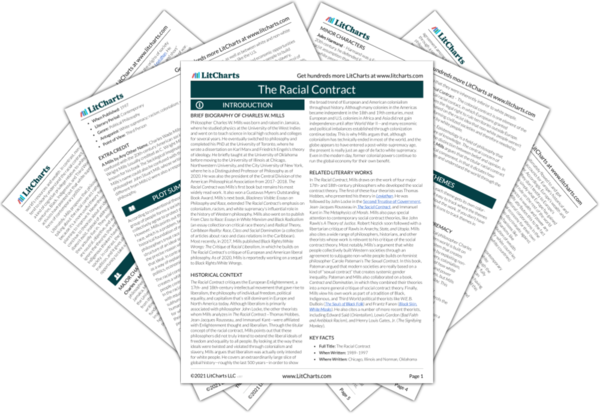It may seem strange that Mills considers himself “pro-Enlightenment,” given that he spends much of the book criticizing Enlightenment philosophers. His point is that the racial contract is really what prevents society from achieving these philosophers’ stated values (like freedom, equality, and justice). Therefore, Mills agrees with the Enlightenment’s stated values—he just doesn’t think Enlightenment philosophers actually wanted to extend them to all human beings. Furthermore, he believes that these philosophers’ theories actually make those values
harder to achieve by covering up the truth.


